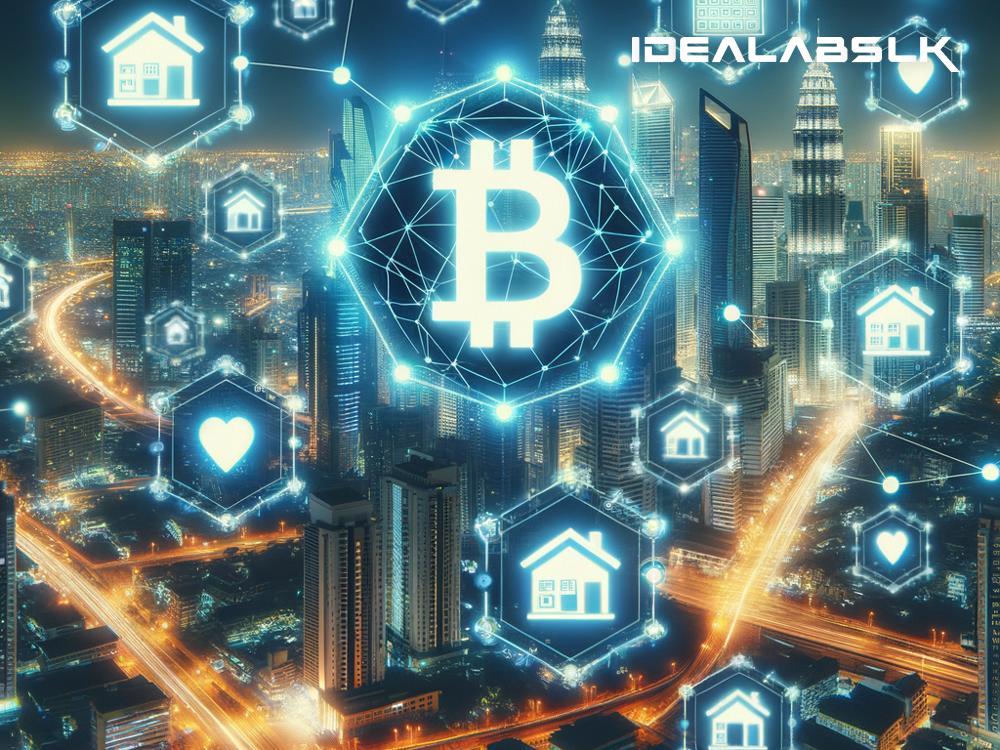AI and Blockchain: Opening Doors to Global Real Estate Investments
In recent years, we've heard a lot about artificial intelligence (AI) and blockchain technology. They're not just buzzwords but revolutionary technologies reshaping various sectors, from finance to healthcare and now, real estate. A particularly exciting development is how these technologies are combining to bring about real estate tokenization, offering global investors a whole new playground. But what does that mean, and how does it work? Let's break it down into simple terms.
What is Real Estate Tokenization?
Imagine you want to buy a piece of a popular shopping mall or a luxury apartment in New York but don't have millions of dollars. Traditionally, that door was closed to you. However, real estate tokenization is changing the game. It's like slicing a cake into smaller pieces, where each slice represents a share of the property. You can own a small part of that property by buying a slice or, in this case, a token.
These tokens are digital and represent your ownership. They're stored and managed securely on a blockchain, which is essentially a digital ledger that's very difficult to tamper with, providing transparency and security to owners and investors.
The Role of AI and Blockchain
Blockchain: The Backbone
Blockchain technology is the backbone of real estate tokenization. It securely stores information about each property and the tokens representing shares of that property. When you buy tokens, this transaction is recorded on the blockchain, giving you proof of ownership that's secure and transparent. Blockchain also simplifies the process, making it faster and cheaper than traditional real estate transactions, which often involve lots of paperwork and intermediaries.
AI: The Brain
AI plays a crucial role by making the market more accessible and efficient. Imagine analyzing vast amounts of data to predict the future value of a property or to find the best investment opportunities globally. That's where AI comes in. It can process and analyze data much faster and more accurately than humans, helping investors make informed decisions.
Additionally, AI improves the investment process by automating routine tasks, like verifying identities and managing properties. This not only reduces costs but also makes investing in real estate more accessible to people worldwide, not just those with deep pockets.
Benefits of Real Estate Tokenization
Global Access
The most notable benefit of real estate tokenization is how it democratizes access to the real estate market. Investors from anywhere in the world can easily buy tokens of properties in different countries, diversifying their investment portfolio without having to physically go there or deal with the complexity of foreign property laws.
Liquidity
Real estate is traditionally considered an illiquid asset, meaning it can't be quickly sold for cash without losing value. Tokenization increases liquidity, allowing investors to buy and sell tokens much like stocks on an exchange. This means you can potentially exit your investment or buy more shares quickly, providing a degree of financial freedom not typically associated with real estate.
Transparency and Security
Thanks to blockchain, every transaction and ownership detail is recorded securely and transparently. This minimizes the risk of fraud and makes the market safer for investors. Moreover, because all the information is available on a public ledger, it's easier for investors to research and verify the properties they're interested in.
Challenges and the Road Ahead
Despite its impressive benefits, real estate tokenization faces challenges like regulatory hurdles, technology adoption, and market understanding. Different countries have different laws regarding property ownership and securities, which can complicate things. Moreover, both AI and blockchain are relatively new and evolving technologies, and their wide adoption in the real estate sector might take time.
However, as these technologies mature and regulatory frameworks adapt, the future of real estate tokenization looks promising. It has the potential to make real estate investing more inclusive, efficient, and profitable, revolutionizing the industry.
Conclusion
AI and blockchain are not just creating a buzz in the tech world; they're paving the way for transformative changes in real estate. By enabling real estate tokenization, these technologies are opening up global investment opportunities, previously accessible only to the wealthy or well-connected. As we navigate the challenges and embrace these innovations, the dream of making global real estate investment accessible to everyone is slowly becoming a reality.

